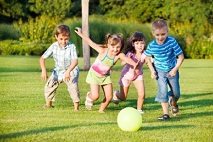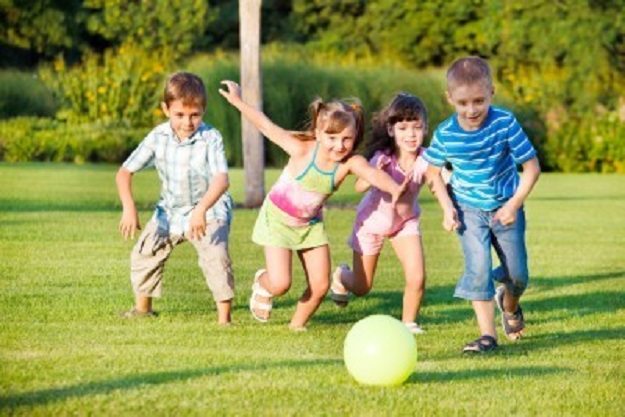Do Young Children Need Physical Education?

As a parent, sometimes the things you hear experts say about children’s health, and the things you observe in your own kid(s), can seem conflicting. Here’s the thing about physical education: yes, these programs encourage physical activity, but it’s the second part of the phrase — the “education” portion — that’s the key factor, and the reason all young kids should have access to formal physical education classes.
Your kids may not need any help being active (your exhausted pet can likely attest to this); but they won’t learn about nutrition, fitness and the importance of a healthy lifestyle on their own. As a partner of the Together Counts™ program for healthy, active living, here’s why it’s so important to offer physical education classes to children, especially when they’re young.
Promoting Lifelong Fitness
According to the Centers for Disease Control and Prevention (CDC), the childhood obesity rate has more than doubled for both preschool children (ages 2-5) and adolescents (ages 12-19). For children between the ages of six and eleven, the rate has tripled.
While encouraging physical activity is the first step to combatting childhood obesity, educating our children about fitness is the step that will carry them into healthy adulthood. Curriculum-based physical education programs teach kids how to exercise, using safe and proper techniques and how to keep their muscles and hearts strong.
When we teach our kids about health and wellness at a young age, and build a positive association around being active, they are much more likely to develop healthy habits that continue throughout their lives.
Boosting the Brain
There’s more to physical education than just keeping your body fit — it also keeps your brain fit. Scientists have discovered a link between physical fitness and brain functionality in children.
The cognitive benefits of PE extend into classroom learning — multiple studies have found an association between physical activity and increased concentration in school. Several studies have researched the link between physical education and cooperative learning — a teaching strategy in which groups of students work together to improve their understanding of a particular subject. Children learn the importance of team-building and collaboration through physical group activities.
Eating Right
A big part of physical education is teaching kids how to make healthy choices for their bodies — and that includes food choices. A comprehensive physical education curriculum includes lessons about nutrition and diet, teaching children (at levels they can understand) why certain foods are good for their bodies.
Physical education classes teach kids about the importance of various food groups, and how they interact with the body — in every area from your bones and heart, to your brain and even your mood. Learning how to make smart food choices will help your children as they get older and need to make more choices on their own.
Building Social Skills
Formal physical education can also help facilitate healthy social interactions. Early on in life, children develop their sense of identity and social cues by engaging in various group dynamics.
Physical activity — like running around on the playground — builds muscles and improves cardiovascular health, while physical education — structured classes in which kids have to complete physical activities — also exercises a child’s self control and develops cooperative skills and consideration for others. Playing team games and activities in a supervised environment allows opportunities for children to learn social skills, like how to lose — and win — graciously.
Participating in group activities and team sports encourages leadership, community engagement, and even altruism. For very young kids, basic and essential lessons like sharing and speaking kindly to others are encompassed in a physical education setting.
Physical education plays a substantial role in shaping children’s health and development, teaching them valuable life skills in fitness, focus, nutrition, and social interactions. A good understanding of these topics can make the difference between your child growing into a healthy adult, or falling into lifelong unhealthy habits.
SPARK is a research-based program that provides award-winning, evidence-based programs for Physical Education (K-12), Classroom Physical Activity & Recess, After School, Early Childhood, Nutrition and Health. Since 1989, SPARK has provided curriculum, training, and consultation to over 100,000 teachers and youth leaders worldwide.
For more healthy ideas, take a look at these other posts from Together Counts!

